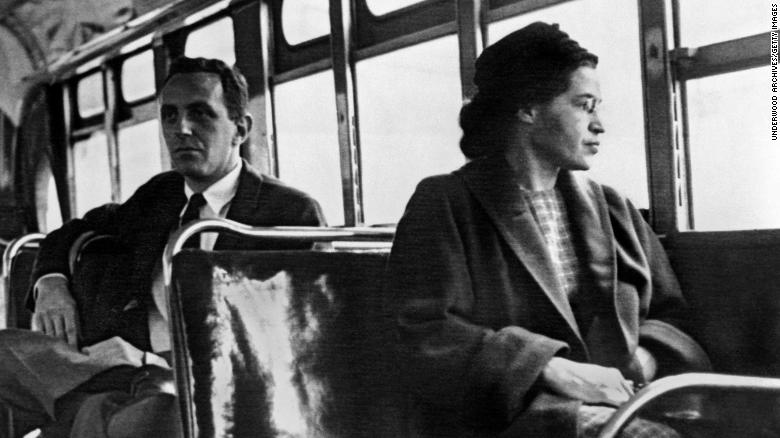It was on this day in 1955 when a simple act of defiance elevated a seamstress in Montgomery, Alabama, into a pivotal symbol in America’s civil rights movement.
On December 1, 1955, Rosa Parks refused to move to the back of a city bus. Little did the 42-year-old know that her act would help end segregation laws in the South.
She was on her way home from work that evening and took a seat in the front of the black section of a city bus in Montgomery.
The bus filled up, and the bus driver demanded she move so a white male passenger could have her seat.
But Parks refused to give up her seat, and police arrested her. Four days later, Parks was convicted of disorderly conduct.
The events triggered a 381-day boycott of the bus system by blacks that was organized by a 26-year-old Baptist minister, the Rev. Martin Luther King Jr.
The boycott led to a Supreme Court ruling that desegregated public transportation in Montgomery. But it wasn’t until the 1964 Civil Rights Act that all public accommodations nationwide were desegregated.
Parks died at age 92 in October 2005.
>>>>
